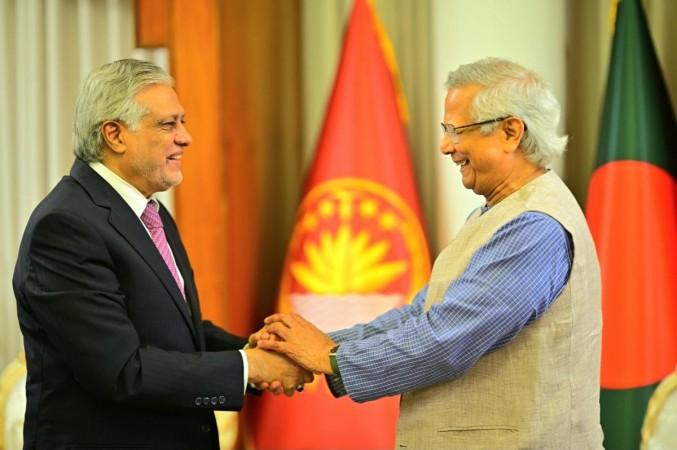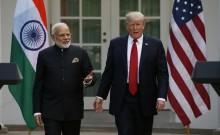
Bangladesh has firmly dismissed claims by Pakistan's Deputy Prime Minister and Foreign Minister, Ishaq Dar, regarding the resolution of the 1971 genocide issue. During his two-day official visit to Dhaka, Dar asserted that the longstanding demand for an apology from Pakistan over the 1971 genocide had been resolved twice in the past. He claimed the issue was first settled in 1974 with a historic document and addressed again during General Pervez Musharraf's visit to Bangladesh in the early 2000s.
However, Bangladesh's Foreign Affairs Advisor, Hossain, categorically rejected these assertions. "I definitely do not agree. If we had agreed, the problem would have been resolved," Hossain stated, emphasizing that the issue remains unresolved. Bangladesh has consistently reiterated its stance on three key unresolved issues: a formal apology for the 1971 genocide, financial compensation for pre-independence assets, and the repatriation of stranded Pakistanis. "We want an accounting, which is a financial solution. We want them to express regret and apologize for the genocide. We want them to take back the stranded people," Hossain was quoted as saying by The Dhaka Tribune.
The meeting between Dar and Hossain took place at Hotel Sonargaon, marking the first state-level visit to Bangladesh by a Pakistani official in 13 years. Despite the diplomatic engagement, the Pakistani Foreign Ministry's statement on social media following the visit did not mention any of the 1971 issues discussed. This omission has been perceived by experts as an indication of the interim government's desperation to strengthen ties with Pakistan, a country that carried out a genocide killing millions of Bangladeshi Bengalis under 'Operation Search Light' in 1971.

Historical Context and Diplomatic Strain
The historical context of the 1971 genocide is deeply embedded in Bangladesh's national consciousness. The genocide, carried out by the Pakistani military under 'Operation Search Light,' resulted in the deaths of millions of Bangladeshi Bengalis and the displacement of millions more. The atrocities included widespread killings, rapes, and the destruction of villages, leaving a lasting scar on the nation's history. The demand for a formal apology and recognition of the genocide has been a consistent theme in Bangladesh's diplomatic engagements with Pakistan.
The relations between Dhaka and Islamabad have been strained, particularly during former Bangladesh Prime Minister Sheikh Hasina's rule. The Awami League government initiated the trial of collaborators of Pakistani forces during the 1971 Liberation War in 2010, further souring bilateral relations. The Awami League has condemned Dar's visit, stating that "without recognition of genocide, normalization is betrayal." The party criticized Dar's remarks and slammed the "anti-Liberation, anti-national illegitimate" Yunus regime for failing to register even a minimal protest against the claim, reducing the matter into a farce.
The recent diplomatic exchange highlights the complexities of Bangladesh-Pakistan relations. While both countries have expressed a desire to strengthen bilateral ties, the unresolved issues from 1971 continue to cast a long shadow over their relationship. The bilateral meeting between Dar and Hossain took place in a "spirit of warmth and goodwill," reflecting the brotherly relations between the two countries and their shared desire to augment engagement and cooperation. However, the unresolved historical issues remain a significant barrier to achieving meaningful progress in bilateral relations.
Bilateral Engagements and Agreements
During the meeting, both sides engaged in a candid and constructive discussion on a wide range of bilateral, regional, and international issues of mutual interest. They affirmed their mutual commitment to enhancing cooperation in all potential areas, including trade, investment, agriculture, education, health, energy, connectivity, people-to-people contact, culture, tourism, and disaster management. Bangladesh underscored the importance of unlocking the untapped potential across all sectors, as both sides recognized the importance of regular diplomatic and sectoral engagements in this regard.
Despite the diplomatic overtures, the unresolved issues from 1971 remain a contentious point in Bangladesh-Pakistan relations. The Ministry of Foreign Affairs reported that the interim government had asked Pakistan for $4.32 billion in compensation, further highlighting the financial aspect of the unresolved issues. "You certainly don't expect that a 54-year-old problem will be resolved in a one-day meeting," Hossain remarked, emphasizing the complexity and depth of the issues at hand.
In addition to the historical issues, the recent visit also saw the signing of several agreements aimed at strengthening bilateral ties. The documents signed included an agreement to exempt visa requirements for officials and diplomats, as well as memorandums of understanding on establishing a joint working group on trade, cooperation between foreign service academies and national news agencies, and an institutional partnership between the Bangladesh Institute of International and Strategic Studies and the Institute of Strategic Studies Islamabad. Plans to begin direct flights between the two countries were also confirmed, with two Pakistani airlines receiving primary approval to operate direct flights.
The diplomatic engagement between Bangladesh and Pakistan comes at a time when both countries are seeking to navigate complex regional dynamics. The historical context of the 1971 genocide continues to influence their bilateral relations, with Bangladesh's demand for a formal apology and recognition of the genocide remaining a significant point of contention. The recent visit by Pakistan's Deputy Prime Minister and Foreign Minister Ishaq Dar has brought these issues to the forefront, highlighting the challenges and opportunities in Bangladesh-Pakistan relations.
As both countries seek to strengthen their bilateral ties, the unresolved issues from 1971 will continue to be a critical factor in shaping their relationship. The demand for a formal apology and recognition of the genocide remains a deeply rooted issue in Bangladesh's national consciousness, and its resolution is seen as essential for achieving meaningful progress in bilateral relations. The recent diplomatic exchange underscores the complexities of Bangladesh-Pakistan relations and the enduring impact of historical events on contemporary diplomacy.













